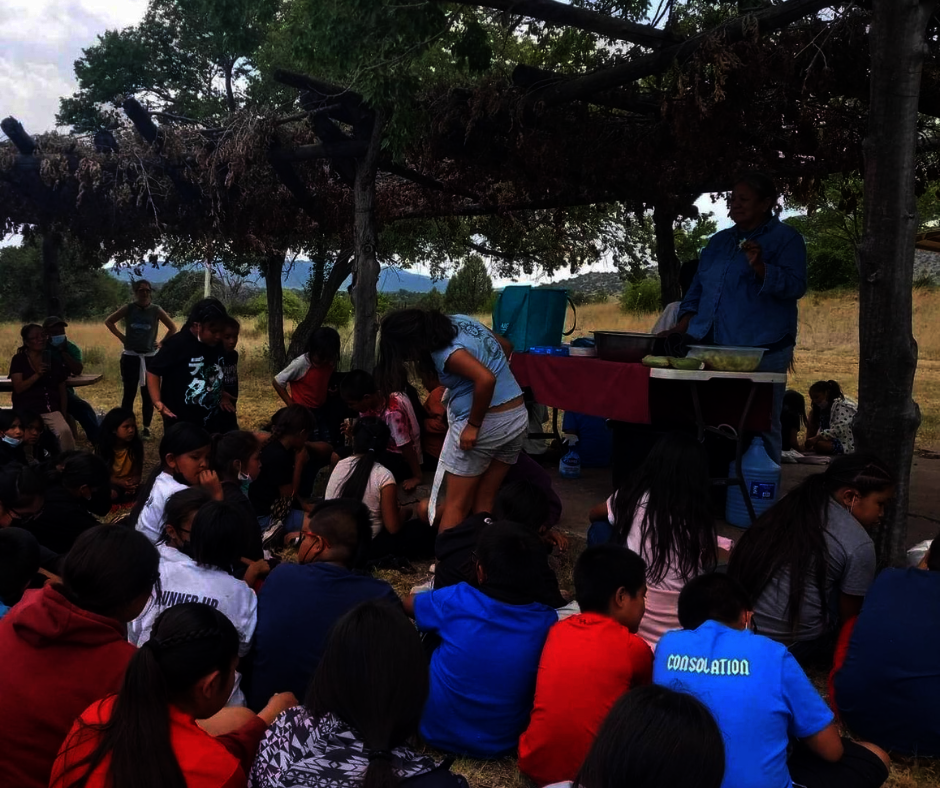By Ben Blevins | Deep Educator
Transforming Futures Through Inclusive Youth Programming
Over the last year, while supporting extracurricular activities alongside tribal schools, we came face-to-face with challenges we had not previously recognized. It began when Shane Burnette, a passionate youth sports advocate and cultural leader, reached out with a concern shared by many tribal members. Shane highlighted an underserved population of youth on the reservation—those who, despite their rich Indigenous heritage, were ineligible for tribal membership due to blood quantum policies. These policies, specifically those within the White Mountain Apache Tribe, require one to have at least 50% White Mountain Apache blood to qualify for enrollment.
This restriction has unintentionally excluded countless youth who carry significant ties to Indigenous communities but fall outside these specific parameters. Stories emerged of young individuals—some with full Indigenous ancestry spanning multiple neighboring nations—being unable to access tribal services, cultural programs, or even a sense of belonging solely because they did not meet the narrow enrollment criteria. These conversations sparked profound reflection among us and our collaborators, leading to the creation of the White Mountain Collaborative.
Designed as an innovative response to systemic inequities, the White Mountain Collaborative builds bridges where barriers once existed. By acknowledging the lived experiences of excluded youth, the program seeks to reinvigorate cultural connections, amplify underrepresented voices, and offer opportunities for holistic development. This shared mission was shaped through partnerships with community leaders like Shane Burnette and passionate voices like Shayla Bischoff, who emphasized the power of storytelling to reclaim identity and heritage. Together, this initiative represents a commitment to inclusion, resilience, and celebrating every aspect of Indigenous identity.
Program Objectives
The White Mountain Apache Collaborative strives to create responsive, culturally relevant education programs in partnership with White Mountain Apache Tribal Members. We aim to foster intercultural dialogue and collaboration, empowering communities to cultivate a "good life" that balances material, psychosocial, and spiritual well-being.
Key Achievements
This year, significant progress was made in addressing the unmet needs of Indigenous youth who do not meet tribal blood quantum requirements for participation in traditional programs. These young people face challenges of inclusion, identity, and access to essential resources. Key milestones include:
These achievements signal the initial steps in building inclusive support systems for Indigenous youth, fostering their ability to thrive while navigating challenges of exclusion and identity.
Social Issue Analysis Challenges Faced by Indigenous Youth Due to Blood Quantum Policies
Blood quantum policies were designed to limit tribal enrollment and determine "Indianness." However, these criteria often exclude Indigenous youth from vital resources, support, and cultural grounding.
Youth with full Indigenous ancestry but mixed tribal heritage can find themselves without formal recognition in either tribe, losing access to cultural experiences and social support networks.
Many educational and cultural programs, language preservation initiatives, and arts activities require formal tribal enrollment. Exclusion from these programs deepens inequities and disrupts connections to cultural heritage.
Events such as tournaments or festivals often require proof of tribal enrollment. Youth who lack documentation cannot participate, marginalizing them further and eroding their sense of cultural belonging.
Addressing Barriers Through Innovative Programming
To combat these issues, the White Mountain Collaborative introduces initiatives to benefit all youth, regardless of enrollment status. Some strategies include engaging youth through mentorship programs, transitional housing support, and inclusive after-school programs that promote personal growth, skill-building, and cultural pride.
How It Works
Our approach starts with education, dialogue, and collective action. Inspired by Indigenous storytelling, such as the Super Indian graphic novel, we empower youth by addressing themes of self-worth and identity while fostering cultural pride. By bridging historical challenges with modern tools—including mentorship, events, and job-training programs—youth feel supported in forging their futures.
Future Plans
Building on current achievements, our next steps include:
Through these initiatives, we aim to strengthen access to opportunities regardless of tribal enrollment and foster a shared sense of community.
Success in Building a Collaborative Model
With the White Mountain Collaborative as a foundation, we envision a future where youth can thrive beyond the constraints of traditional blood quantum and tribal membership models. By partnering with tribal leaders, educators, and youth advocates, we are laying the groundwork for an inclusive and prosperous future for these young individuals.
Call to Action
To sustain momentum and broaden the impact of these initiatives, we invite donors, educational institutions, and youth advocates to support this vital work. Together, we can ensure every Indigenous youth has access to opportunities that honor their identity, culture, and aspirations.
Join us in creating a brighter future for Indigenous youth today.
By Benjamin Blevins | Project Leader
By Ben Blevins | Project Leader
Project reports on GlobalGiving are posted directly to globalgiving.org by Project Leaders as they are completed, generally every 3-4 months. To protect the integrity of these documents, GlobalGiving does not alter them; therefore you may find some language or formatting issues.
If you donate to this project or have donated to this project, you can receive an email when this project posts a report. You can also subscribe for reports without donating.
Support this important cause by creating a personalized fundraising page.
Start a Fundraiser